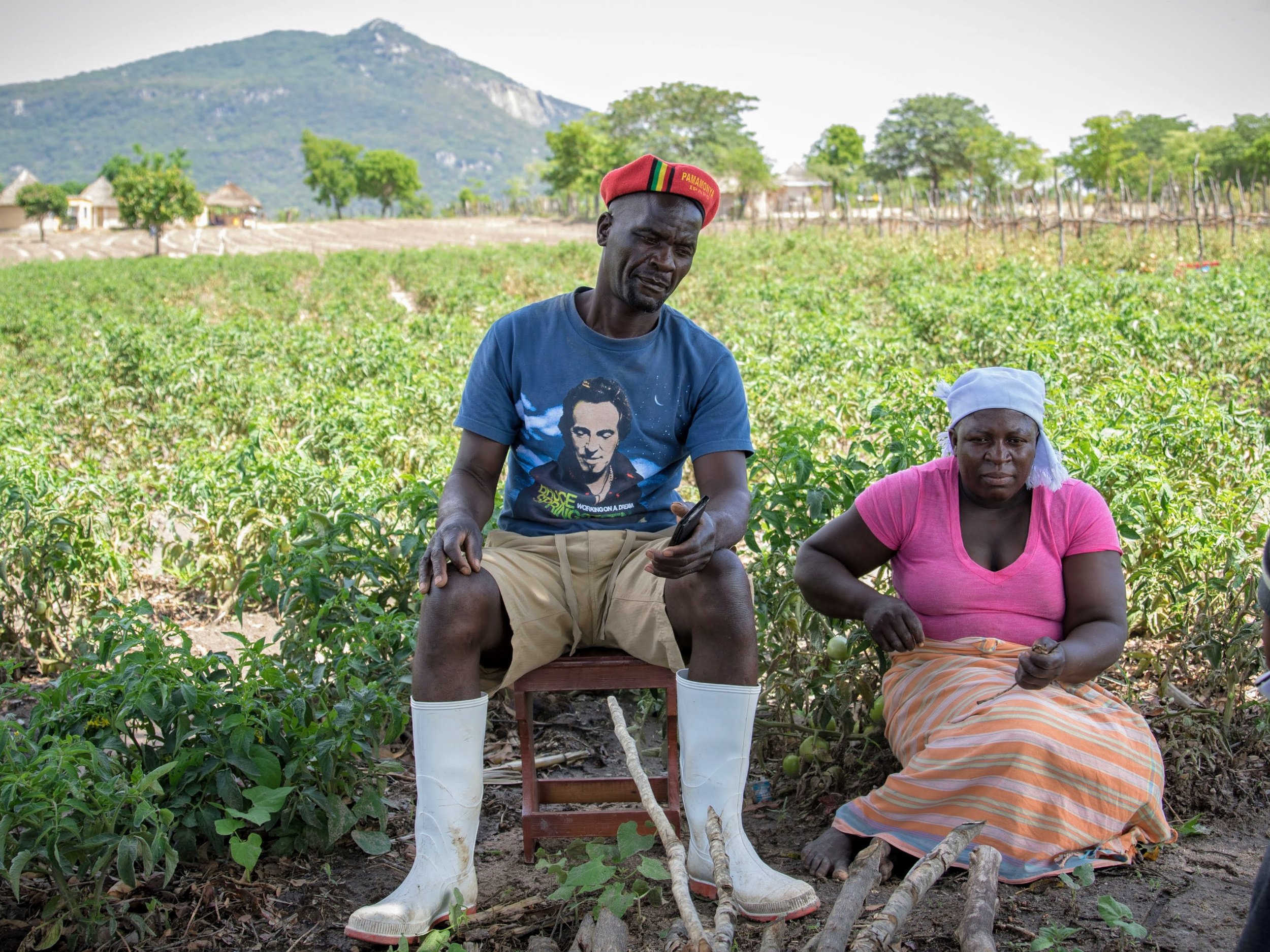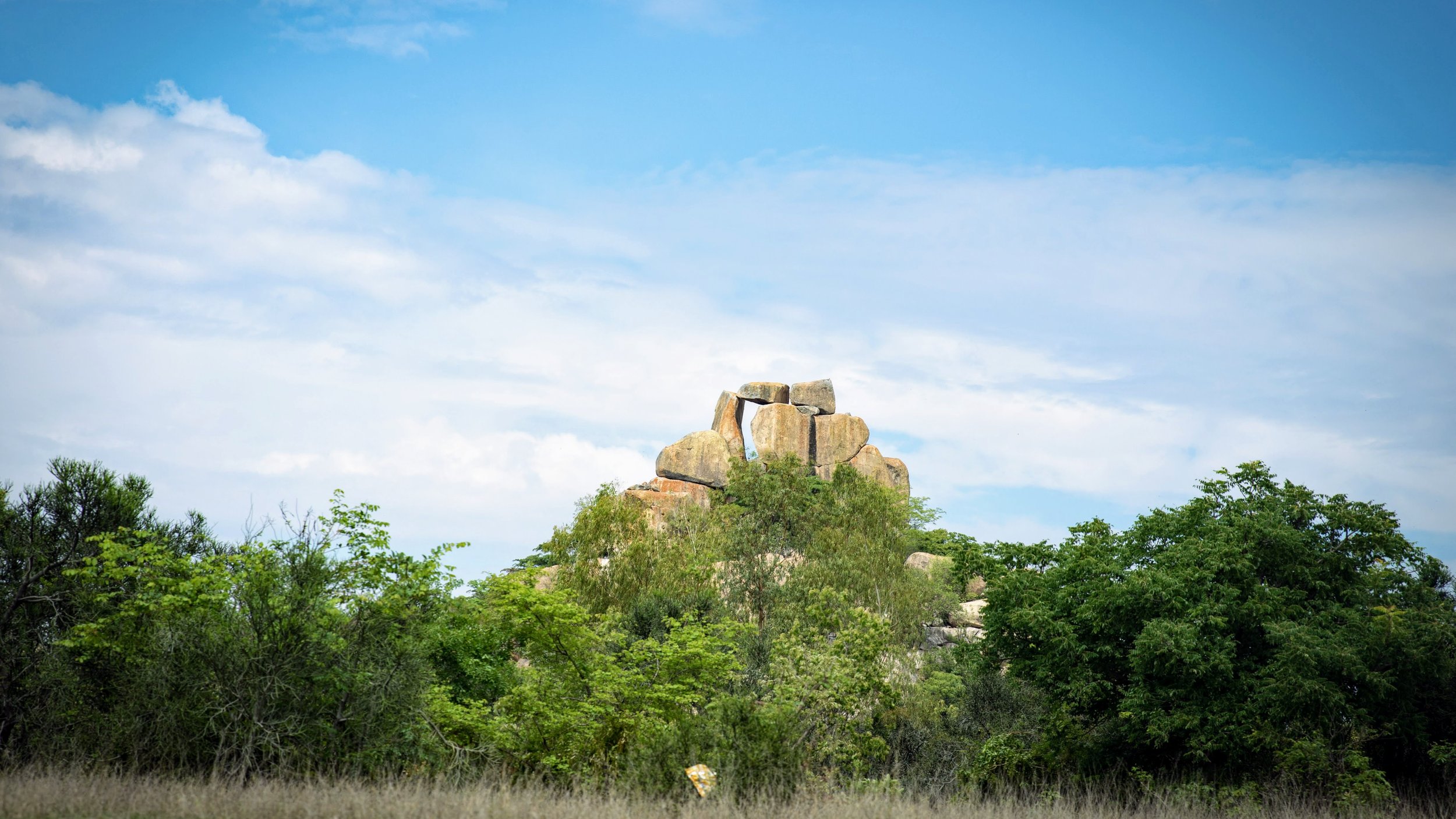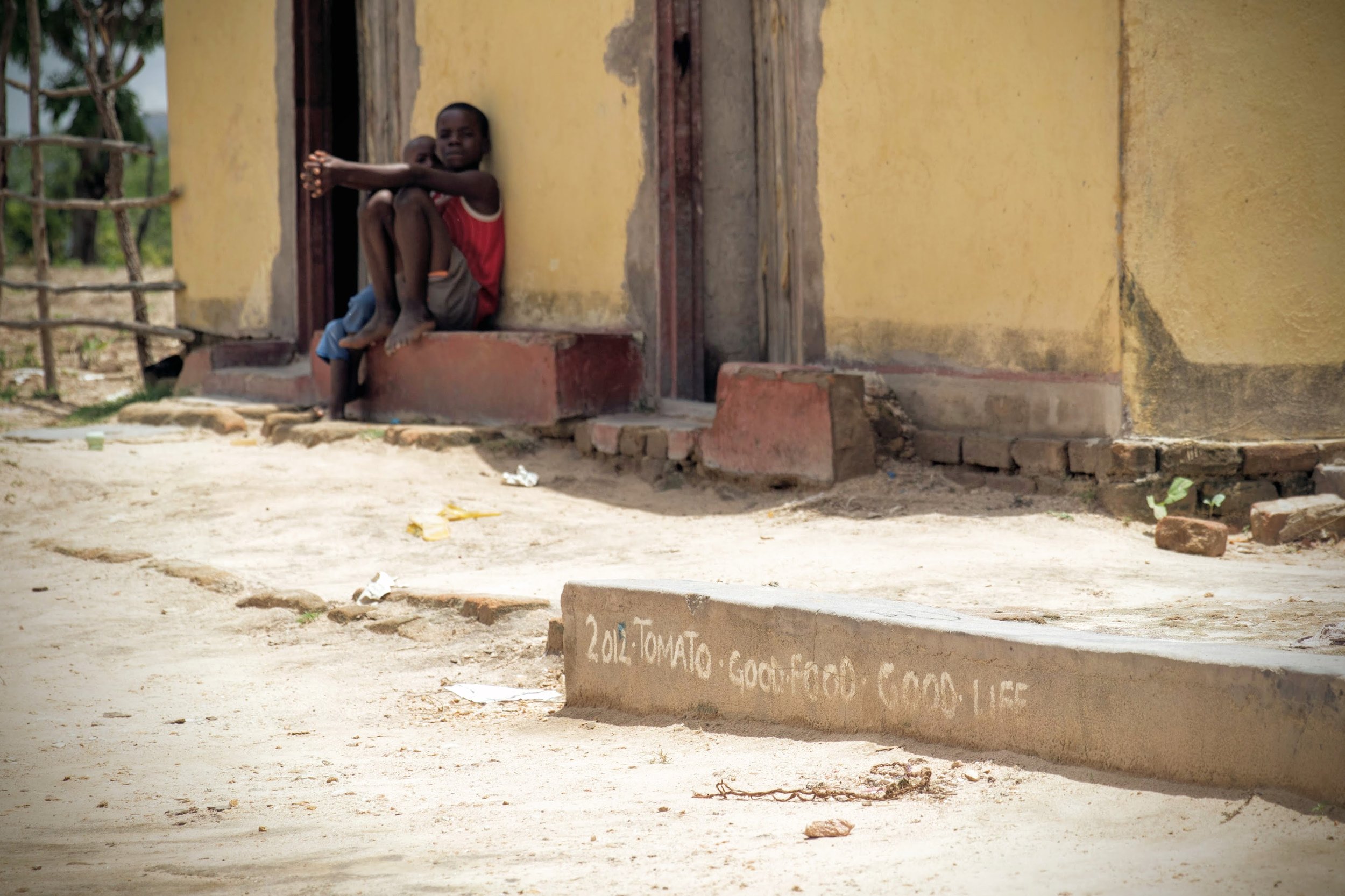An African Success Story
The Successful Story of an Ex-convict turned tomato farmer in Sth Eastern Zimbabwe
14 November 2017 - Filming for GIZ in South Eastern Zimbabwe
It seems like the rains are here well and truly, so when our job called for us to visit a place an hour south of Mutare we were sceptical if it would be dry enough. We generally need to film outdoors, but knew the likelihood of dry weather was greater than our rainy city, and sure enough it was! We do love the warmer weather!
Our clients driver takes us south of the city and we leave the heavily cloud-shrouded (and now green) mountains for the drier rocky ones.
The journey to a place is always part of the adventure, but when it is for work, it adds a dimension to our experience. Getting there, and the challenges we face working in remote environments isn't always easy, but also seeing and understanding the landscape and culture gives us a bit more understanding of the advantages or disadvantages of people living in that area. One challenge for me straight away was that they only spoke Shona here, which I only know the very basics of unfortunately, but between Philip and our client we managed to get everything we needed!
Driving South of Mutare City, through the high-denisity town of Sakubva and its markets (on the right) and leaving ring of mountains and rain behind us in the Eastern Highlands for the drier inland rural areas of Bocha.
Shona background
Traditionally, Shona people live in isolated settlements, usually consisting of a Headman or men, and their extended families.
The place we visited last week was so remote that even if they had solar power, there is no signal we could see for any communications to the outside world unless they somehow got satellite, but that was not in evidence and even my cell network was unavailable. If they want to supplement the food they grow they must somehow travel a far distance, either in a shared vehicle, on foot at least for a fair way before they can hitchhike or catch a commuter bus, or use the old foot network I suppose.
In comparison, yesterdays farmstead, which although is still what you would call rural, was still close to the hub point of schools, some stores and had TV & Radio signal as was evident in the nice home we were welcomed into. This farm we visited is still part of the Manyika tribe area (the Eastern part of Zimbabwe) which I learnt comprises of an impressive 14 dialects! The area we were in however are Bocha which is a dialect and an area that quite a few here still practice Polygamy or more accurately polygyny. I learnt that is the correct term for the practice of a man having multiple wives
Our hosts and their story
Our hosts, the successful farmer with his two wives. The first wife on the right, a boisterous and friendly women, was the wife who was also being filmed. His second wife is to the left, shy but as friendly as the first. They were all very kind towards each other and us their guests.
The filming we were to undertake was to capture the success of a small scale farmer as a way to show others how he has managed to succeed. How he was not only able to successfully grow crops in the sandy soils of his area, but to use good agricultural practices with water, mulching, crop rotation, plus be able to choose the right profitable crops to go to market. He showed us how he chose to put profits into buying assets for the farm and more importantly using the excess in improving the lives of his large family.
As we arrived, we were taken into a separate building that appeared to be the main indoor living area with big red velvet covered couches, a small TV and a radio playing music in the corner. As we were introduced we discovered the farm owner to be the tall strong man with a Bruce Springsteen t-shirt, a red beret and very clean white gum boots. He was soft spoken and had two wives, the first wife was the one we were introduced to first and was of a bubbly nature while the second was slender and of a quieter disposition. One of the things we learnt was although they shared the sleeping quarters, he has to build them each a separate indoor kitchen! Clearly their own domain. He has 11 kids, 3 of the younger ones were present, the others either in school or married and in their own homes.
This farmer told us of his story and we were pleasantly surprised by his frank honesty in his answers as in this country I have learnt that success can be used against you and make you a target unfortunately. However he remains carefree and having been described to me as someone having suffered hardships like being evicted from his original home and even spent some time in jail (the farm version) he was able to acquire this piece of land and become successful. He adapted and accepted help and advice from the client we work with, as well as the government extension work and from there was able to share his knowledge with his neighbours. He grows a number of crops, his primary being tomatoes, then peppers and a number of other crops. The below sequence of photos have descriptions below.








